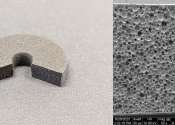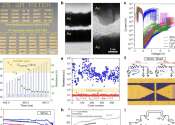AI study reveals dramatic reasoning breakdown in large language models
Even the best AI large language models (LLMs) fail dramatically when it comes to simple logical questions. This is the conclusion of researchers from the Jülich Supercomputing Center (JSC), the School of Electrical and Electronic ...
Jul 23, 2024
0
83






